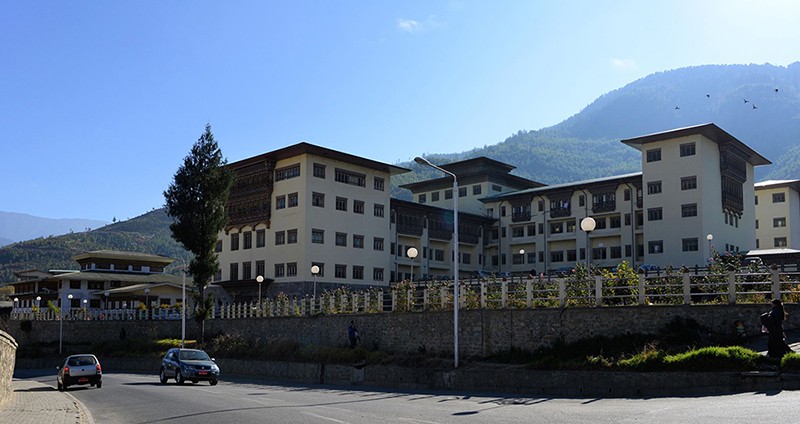The first dose, it is said, gives only half of the total protection
The first dose of the Covid-19 jab gives only about half of the total protection that the vaccination is supposed to give and the second dose is, therefore, must to complete the required vaccine efficacy, according to an official from the health ministry.
Additionally, the official said the effect of the vaccine starts to wean off after eight weeks, and the second dose boosts the efficacy and brings it to the required level for better protection against the disease.
The Covishield or the Oxford-AstraZeneca vaccine has the efficacy of 81.3%.
Health Minister Dasho Dechen Wangmo said the second dose would be planned after eight to 12 weeks of the first dose vaccination.
Similar to the first dose, side effects like experiencing soreness on the site of injection, fever, headache, fatigue, muscle pain, nausea, chill and mild cough are expected after the second dose.
“The relaxation on the existing restrictions would be reviewed and enforced only after the completion of a nationwide rollout of the second dose vaccination plus two weeks of lapses,” she said, adding that the seven days quarantine from high to low risk areas and 21 days quarantine for those incoming travellers from abroad would not be practical after the second dose.
For those travelling to abroad after receiving the Covishield first dose, an official said if the vaccine of the same brand is not at all available, they may switch to others. However, it is recommended that the person takes the same brand for the second dose too.
Lyonpo Dasho Dechen Wangmo said the Covishield vaccine would prevent from getting the COVID-19 infection and would prevent from severe illness and hospitalization even if one gets the COVID-19.
Additionally, she said it would also protect vulnerable people around from getting the virus and contribute to the national immunization coverage, thereby helping achieve herd immunity to stop the spread of the COVID-19 in the community.
An official also said whether Covishield would be able to protect against new variants of the COVID-19, there is no scientific evidence on the effectiveness on the new variants.
People who are not vaccinated would be under the health ministry’s surveillance for periodic testing and monitoring to prevent community transmission. They are also required to undergo mandatory quarantine while travelling from high to low risk, to be tested prior to hospital admission, and international travel may not be possible given the requirement of vaccination certificate by other countries.
The health ministry plans to offer vaccination services to individuals in the quarantine facility towards the end of their quarantine period.
Additionally, vaccination for those deferred and new eligible population will continue from the respective health centers with an appointment system fulfilling the required number of eligible clients (minimum of 10 at a time) to avoid vaccine wastage after April 13.
The ministry has also asked people with mobility issues (who cannot walk) to register with 1010 as the home based vaccination services will be closed after April 13.
Meanwhile, there are also plans to explore vaccine for the young age group to increase herd immunity in the population.
Thukten Zangpo from Thimphu












